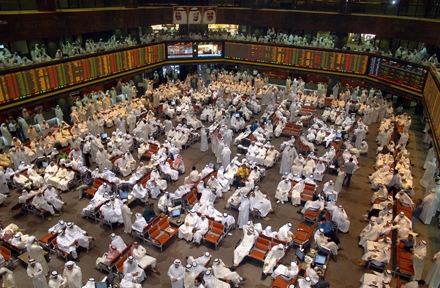Qatar’s budget surplus more than tripled to QR44.5 billion ($12.2 billion) in the fiscal year ended in March, double the original plan and helped by booming revenues from liquefied natural gas, a prospectus for the country’s potential Islamic bond issue showed. Qatar is the world’s top exporter of liquefied natural gas and its fiscal surplus for 2011/12 was equivalent to 7 percent of 2011 gross domestic product, according to a Reuters calculation, up from the original QR22.5 billion plan. That puts the government in a comfortable position as it plans to spend more than 10 percent of GDP on average on infrastructure in the run-up to hosting the soccer World Cup tournament in 2022.
In the previous fiscal year Qatar posted a surplus of QR12.8 billion, or 2.8 percent of GDP. The country’s expenditure surged 11 percent to a record QR158.9 billion last fiscal year according to preliminary data, the prospectus said, well above QR139.9 billion planned. "Due to a significant wage and pension increase … for Qatari government employees, government expenditure for salaries and wages is expected to significantly increase for future budgets," the prospectus said.
In September, Qatar, which has avoided the social unrest that rocked the Arab world last year, raised basic salaries and social benefits for state civilian employees by 60 percent, while military staff received 50-120 percent increases. Spending on government wages and salaries rose more than 9 percent to QR25.2 billion in 2011/12, the prospectus showed.
Recently, the government tapped international markets to refinance current debt and obtain low-cost financing for its infrastructure program and other purposes, the prospectus said. The state plans to boost spending further by over 12 percent to QR178.6 billion in the fiscal year that began in April, including on wages, services and infrastructure, but expects to see a still comfortable surplus of QR27.8 billion. Revenue soared by nearly 31 percent to an all-time high of QR203.4 billion in 2011/12, thanks to a jump in gas royalties and taxes as well as the business and corporate income tax, the prospectus showed.
The original revenue plan was QR162.5 billion based on a conservative oil price estimate of $55 per barrel. Oil and gas-related revenue accounts for roughly 81 percent of Qatar’s overall budget income. Qatar’s total outstanding indebtedness stood at $56.9 billion as of the end of March, or 32.8 percent of GDP, the prospectus also showed.
Agencies
10 July





































































